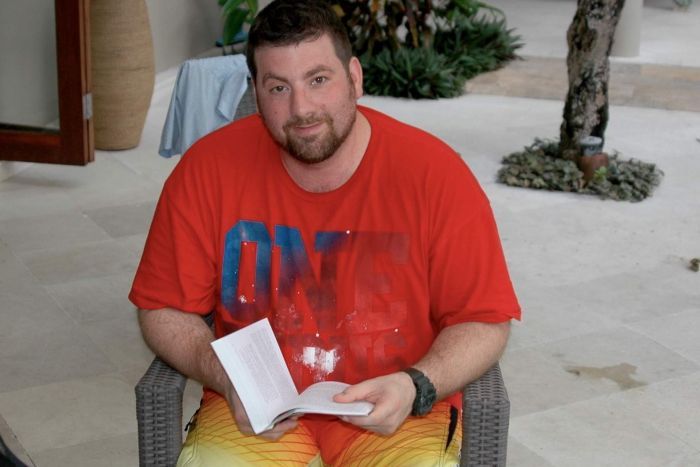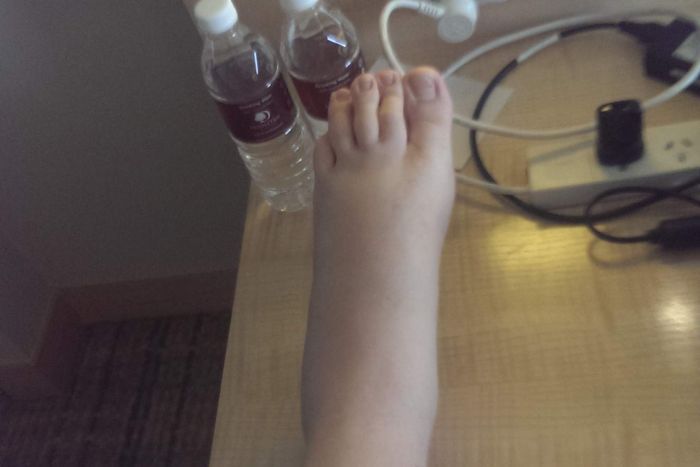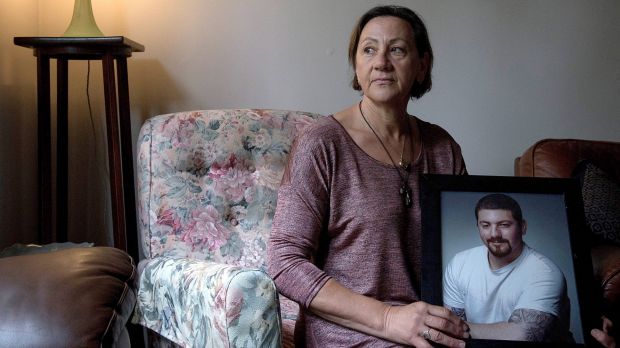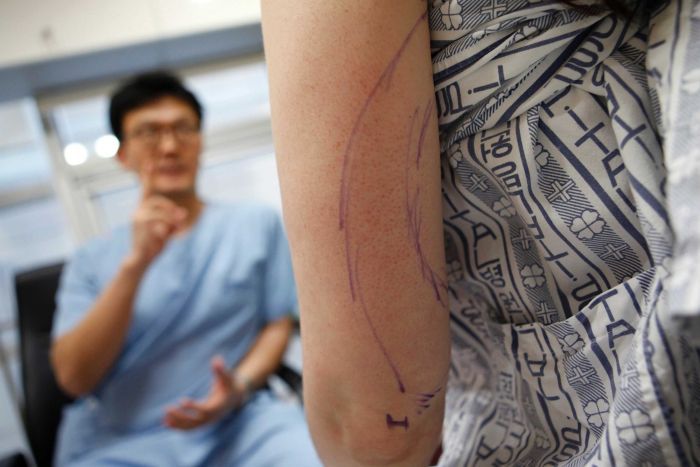Man Who Died After Undergoing Plastic Surgery In Malaysia Sparks Warning In Australia
31-year-old Leigh Aiple underwent two marathon surgeries in the space of five days.
A coroner in Australia is urging the authorities to warn Australians about the risks of medical tourism after investigating the death of a 31-year-old who died after undergoing extreme plastic surgery in Malaysia
ABC News reported that in 2014, "overweight and self-conscious" 31-year-old Leigh Aiple paid more than AUD35,000 (about RM105,000 in 2014) for a "life-changing" plastic surgery package in Malaysia.
The package was offered by New Zealand-based medical travel agency Gorgeous Getaways, who advertised the Beverly Wilshire Medical Centre (BWMC) in Kuala Lumpur as "a boutique medical centre offering surgical and non-surgical procedures using state-of-the-art equipment and highly-skilled, experienced specialists".
In April 2014, the Melbourne man underwent two marathon surgeries at BWMC within five days
ABC reported that he had a 360-degree tummy tuck, extensive liposuction, an upper eye lift, a chin tuck, a thigh lift, chest sculpting, and lip filler. According to News.com.au, the first surgery lasted about 8 to 10 hours, while the second lasted just under five hours.
But all was not well. Days after completing both surgeries, some of Aiple's stitches had burst open. He also complained of being short of breath, a rapid heartbeat, vomiting, and fainting spells.
Sydney Morning Herald reported that carers who visited his hotel room said it "was in a mess with blood-stained robes, towel, bedsheets". The portal also cited medical reports, stating that Aiple returned to the doctor multiple times after being discharged from the hospital to a hotel, complaining that six of his stitched-up wounds had ruptured open.
In e-mails to his mother, Aiple told her that he "couldn't move, stand, or roll out of bed after the first surgery", and that he was vomiting and his heart was rapidly beating.
Despite that, Aiple was given the all clear to fly home after his open wounds (which were oozing fluid and blood into his bed) were treated. Less than 24 hours after landing in Melbourne, he was dead.
According to ABC News, Aiple's mother Grace Westworth revealed that her son got off the plane in a wheelchair in a "horrid" and painful condition with "gaping holes" that she could "see inside". She also noticed that he had a swollen foot.
The next morning, Westworth found her son collapsed in his bedroom. Paramedics were called in and attempted CPR, but Aiple had passed away at the scene, barely a day after he arrived home from Kuala Lumpur.
Following her son's devastating death, Westworth requested for a coroner to investigate the care and treatment Aiple received at the KL-based clinic. It was revealed to be "well below Australian standards".
“I don’t want anyone to risk it,” Westworth, who lobbied for the case to be reopened in April 2016, told ABC News. “It was totally dangerous. He was high-risk and they didn’t stop.”
According to Victorian coroner Caitlin English's report, which was delivered in early December 2017, Aiple died after suffering from pulmonary thromboembolism - a condition in which one or more arteries in the lungs are blocked by a blood clot.The investigation was further reviewed by Professor Mark Ashton, president of the Australian Society of Plastic Surgeons, who said that the multiple surgeries Aiple had would "never have been performed in Australia"
"The pre-operative consultation, and the scope and spacing of the individual operations are NOT of an international standard,” Ashton told the coroner. He added that if the procedures were done in Australia, they would be done in separate hospital admissions, and some months apart.
ABC News reported that he also told the coroner that Aiple would have been treated as a "high risk" patient in Australia, as he was 124kg and classified as having Grade III Obesity. He was categorised as "moderate risk" by Malaysian surgeon Dr. Nasir Zahari.
In addition, Ashton criticised the decision to discharge Aiple from the hospital with open wounds was one of the "very worst things that could have been done", adding that the care he received afterwards was grossly inadequate.
His review also highlighted that the level of anti-blood clotting treatment administered was below Australia's recommended levels, although Ashton noted that the autopsy showed that the clots occurred weeks before his plane trip home when he was still at the clinic.
"These companies are putting profit over patient safety."
Adding on to his review, Professor Ashton said that there is no regulation in medical tourism, as the bundle packages are often designed to have maximum surgeries in the shortest period of time without considering the risks. Hence, Australians who opt for these packages are "taking a bet".
ABC News also quoted Emily Hart, a medical negligence lawyer, who said that those contemplating plastic surgery overseas could learn from Aiple's death.
"The standards in Malaysia were met in this case, but they come nowhere near the standards here in Australia. These companies are putting profit over patient safety," she said.
It is estimated that 15,000 Australians travel overseas for cosmetic and dental work each year, as the cost of overseas surgery could be a lot cheaper than that in Australia.
Following the results of the inquest, coroner Caitlin English urged Victoria's Chief Health Officer to publish a health advisory to warn Australians of the risks associated with seeking medical care overseas
"The standards of medical practice in Australia are amongst the highest in the world, and those who seek medical services such as plastic surgery overseas may not be aware of the difference in standards of medical practice and management of patient care," she said, as quoted by Sydney Morning Herald.
Meanwhile, Dr. Nasir Zahari - the surgeon who treated Aiple - said that while he has not seen the coroner's review, staff at the BWMC gave the 31-year-old the best medical and surgical care
Explaining that Aiple was duly informed of the procedures, post-operative care, and the possible risks and complications prior to the surgeries, Dr. Nasri added, "Necessary steps to prevent and minimise possible risks had been taken including the prevention of Deep Vein Thrombosis."



